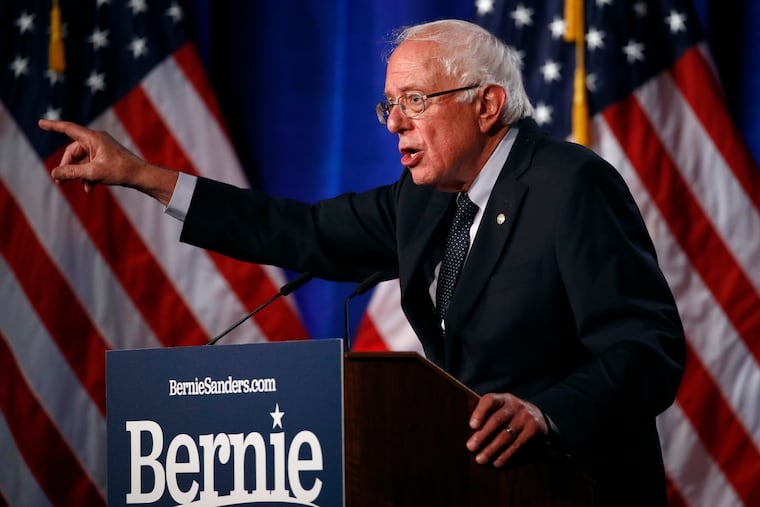Bernie Sanders vs. the reality of a $15 minimum wage | Opinion
In response to charges of wage hypocrisy, Sanders announced that his campaign will limit the number of hours his workers will be allowed to work each week.

Bernie Sanders has raised a nonstop fuss over the past couple of years agitating for a $15 minimum wage. In a joint announcement with #FightFor15 on Labor Day, Sanders was perfectly clear. “In the current political climate,” he said, “there are only two ways for workers to win higher pay. Number one, we’ve got to increase the minimum wage. And second of all, we have got to build strong trade unions. But in Washington and across the country, many politicians are doing everything they can to keep wages low.”
How surprising was it, then, to learn that Bernie Sanders himself pays his campaign workers less than the minimum he wants to require of all U.S. employers?
To be fair to Sanders, the campaign workers in question are not hourly workers, but are paid a fixed salary of around $36,000 per year. For a standard 40-hour work week, that’s equivalent to more than $17 per hour. But, as is common for campaign workers, and salaried employees more generally, these workers almost always work more than 40 hours per week. For a campaign worker who clocks 50 or 60 hours, $36,000 a year hits between $11 and $13 per hour.
In response to charges of wage hypocrisy, Sanders announced that his campaign will limit the number of hours his workers will be allowed to work weekly.
It is easy to give Sanders the benefit of the doubt on this. He clearly wants workers to earn a living wage. But wishes don’t alter reality. Sanders is bumping up against the economic reality that every employer faces.
When the government requires that an employer pay workers more, one of three things must happen: the employer’s customers must pay higher prices, the employer’s investors must receive lower returns, or the workers’ hours must be cut. Because political campaigns run on donations, there are no prices to raise and no investors to bleed. That leaves only the workers. To pay his campaign workers $15 an hour, Sanders must cut their hours. This solution won’t put one extra dollar into his workers’ pockets.
Economists have been trying to explain this labor effect of the minimum wage to politicians like Bernie Sanders for decades. Hopefully experiencing the economic reality will help him to see the issue more clearly.
Now Sanders has to make the same hard choices that he and his like-minded colleagues have forced business owners to make for a long time. While the right-wing chattering class had a field day calling him a hypocrite, Sanders is no more hypocritical than business owners are greedy. Like employers everywhere, he is making the best he can of restrictions placed on him by the whims of the ruling class on the one hand, and the laws of economics on the other.
What is bothersome is what Sanders told the Des Moines Register about his employees going to the media with their complaints. "It does bother me that people are going outside of the process and going to the media," he said. "That is really not acceptable. It is really not what labor negotiations are about, and it's improper."
Yet that is exactly what Sanders did when he called out Amazon and Walmart for not paying their workers the same $15 an hour he denies his own employees. In fact, he went on to say that Amazon’s CEO and the Walton family have enough personal wealth to afford to pay their workers more. But these charges could also be laid at the Senator’s feet. His wealth, estimated at $2 million, is a lot less than that of Amazon’s and Walmart’s top executives, but he employs a tiny fraction of their work forces.
What should Sanders do? He should admit that economic forces can’t be legislated away. As an aspiration, it’s fine to say that everyone should make at least $15 an hour. But to mandate that aspiration invites consequences that usually end up harming the most vulnerable workers. It’s good to see a politician finally grapple with the consequences of a policy he has pushed on the rest of us for so many years.
Antony Davies is associate professor of economics at Duquesne University. James R. Harrigan teaches in the Department of Political Economy and Moral Science at the University of Arizona. They host the weekly podcast, Words & Numbers.